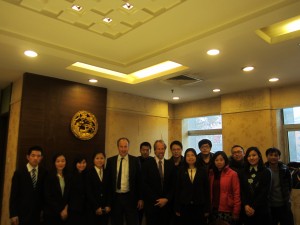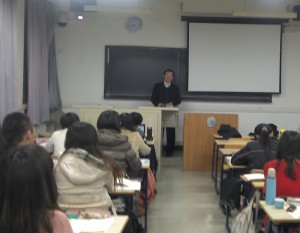New gTLDs: Trademark Clearinghouse (10/09/12) Adopted and Submitted by ALAC
After TMCH Meeting in Brussels on August 20-21, 2012, the problems existing in the current TMCH implementation model have become widely aware in the community. Although TMCH providers is scheduled to begin operating in October (3 weeks from now), ICANN’s planned implementation models for Sunrise and Trademark claims are apparently not supported by a majority of the new gTLD applicants. The current model’s complexity, restrictions on new registries and high costs are widely criticized.
At-Large community concerns that the problems in the current model may be against the public interests for the following reasons.
1. Burdensome Cost Model to New Registries from Developing Countries
On June 1, 2012, ICANN posted a Preliminary Cost Model projecting the potential fees to be charged to TLD registries and trademark holders to fund the TMCH, i.e. upfront fees $7-10k per registry and the $150 per trademark were “upper bands” of the fees.
Since the proposed cost model was strongly disputed at Brussels Meeting, the ICANN-delegated providers are now open to considering other models including a transaction model whereby there would be a fixed set up fee paid by each registry (for each TLD) and a variable transaction based fee.
The proposed fees are believed expensive to most new gTLD registries. For new registries from the developing countries that have just paid off high application fees, it would become extraordinary burdensome for their future operation. The little-used Application Support Program is unlikely to offer any help as well.
At-Large community therefore suggests ICANN consider setting up Implementation Support Program to help the new gTLD registries from developing countries to handle the complicated and expensive TMCH implementation.
2. One Set Does Fit All
The current TMCH model uniformly applies to all the gTLD registries, irrespective of their difference. As a result, there may be a couple of registries obliged to pay for the TMCH services that are not need by them. In a hypothetical case, say “.IGO” for intergovernmental international organizations’ names only, the registry has to pay for TMCH services although no trademark will be eligible for registration under .IGO because IGO names are not “trademarkable” under the Paris Convention (with more than 100 member states).
On the other hand, uniform TMCH may not provide the tailored services that are really needed by the registries. For example, those GEO TLDs or IDN TLDs would like to restrict the Sunrise Period to only those rights holders having trademark registrations in their geo-regions or character set. But they would not be able to do so without setting up a completely separate process with the TMCH at additional cost or doing by themselves. This would additionally burdensome to registries, particularly from developing countries.
It seems that the ICANN drafted model as proposed / planned potentially limits market flexibility for variations of approaches to sunrise and therefore drives the (per TLD) work on custom sunrises back to the TMCH. Instead, more open and flexible model deserves further exploration.
3. Not Actively Soliciting Consensus
Since the implementation will be very imminent and there still lacks of consensus in a variety of stakeholder groups on almost all aspects of the implementation model, At-Large community seriously concerns whether it would be implemented timely for the new gTLD program. Since the much-debatable Brussels meeting, there is no follow-up meeting scheduled as planned.
ALAC therefore advises the Board to take immediate action to ensure that ICANN is seen as moving forward with the TMCH in public interests and with community consensus.
_________________________________________
New gTLDs: IPR Policy
Letter Regarding Registry SG DIDT on TMCH (10/17/12)
adopted and submitted by ALAC
In August 2012 the Registry Stakeholder Group filed a DIDP requesting all documents relating to
• any claims alleging ownership of intellectual property rights made by any bidder or bidders [for TMCH] responding to the RFI, including but not limited to claims of copyright in data or compilations of data, patents, trademarks or trade secrets; and
• any analysis regarding validity of these claims.
In September 2012 ICANN responded that:
Regarding this item, to the extent that bidders made claims of ownership of intellectual property rights associated with the proposed operation of the Trademark Clearinghouse, those materials are subject to the same conditions of non-disclosure identified in conjunction with Documents on cost and financial models regarding the operation of TMCH. Regarding claims of ownership of intellectual property rights arising out of the operation of TMCH are being negotiated and will be published in the finalized agreement later.
ALAC wishes to request further information on the following:
• intellectual property rights affect or impact ICANN’s decision and selection of TMCH providers. Legally, except trade secrets, intellectual property rights, including Patents, Copyright, Trademarks, should be publicly disclosed either for subsistence or exercise. If any intellectual property right affects or impacts ICANN’s decision or selection, it shall be disclosed to the community in due course, rather than kept in secrecy.
• whether ICANN (and its community) is appropriately licensed on royalty-free or RAND (reasonable-and-non-discriminatory) basis by the relevant intellectual property owners.
• whether ICANN is developing necessary intellectual property policy in decision-making or contract negotiation.
ALAC would further like to advise that ICANN needs to implement a thoughtful and comprehensive intellectual property policy in which public interest is properly secured. In this regard, IETF’s intellectual property policy sets a good example.
 2012年12月21日,应北京师范大学互联网政策与法律研究中心主任、法学院薛虹教授邀请,北师大法学院荣誉教授、世界经济论咨询委员会副主席、ICANN前任总裁罗德-贝克思多先生为法学院10级本科生与部分研究生讲授了网络知识产权课程。在授课前,薛虹教授接见了罗德教授一行,并与罗德教授就进一步合作进行了愉快的洽谈。薛虹教授对罗德的来访表示了欢迎,肯定了罗德教授的来访将进一步增强中心的科研实力和法学院的国际化水平。罗德教授对薛虹教授的接见和邀请表示感谢,他强调了和青年学生交流的重要性,希望以后有更多机会来访和授课。罗德-贝克思多教授还与部分法学院青年学生进行了座谈会,整个座谈过程内容丰富多彩,气氛轻松愉快,罗德-贝克思多教授丰富的人生经历和诙谐的讲话深深感染了在座的每位同学,同学们都感觉到受益匪浅。
2012年12月21日,应北京师范大学互联网政策与法律研究中心主任、法学院薛虹教授邀请,北师大法学院荣誉教授、世界经济论咨询委员会副主席、ICANN前任总裁罗德-贝克思多先生为法学院10级本科生与部分研究生讲授了网络知识产权课程。在授课前,薛虹教授接见了罗德教授一行,并与罗德教授就进一步合作进行了愉快的洽谈。薛虹教授对罗德的来访表示了欢迎,肯定了罗德教授的来访将进一步增强中心的科研实力和法学院的国际化水平。罗德教授对薛虹教授的接见和邀请表示感谢,他强调了和青年学生交流的重要性,希望以后有更多机会来访和授课。罗德-贝克思多教授还与部分法学院青年学生进行了座谈会,整个座谈过程内容丰富多彩,气氛轻松愉快,罗德-贝克思多教授丰富的人生经历和诙谐的讲话深深感染了在座的每位同学,同学们都感觉到受益匪浅。